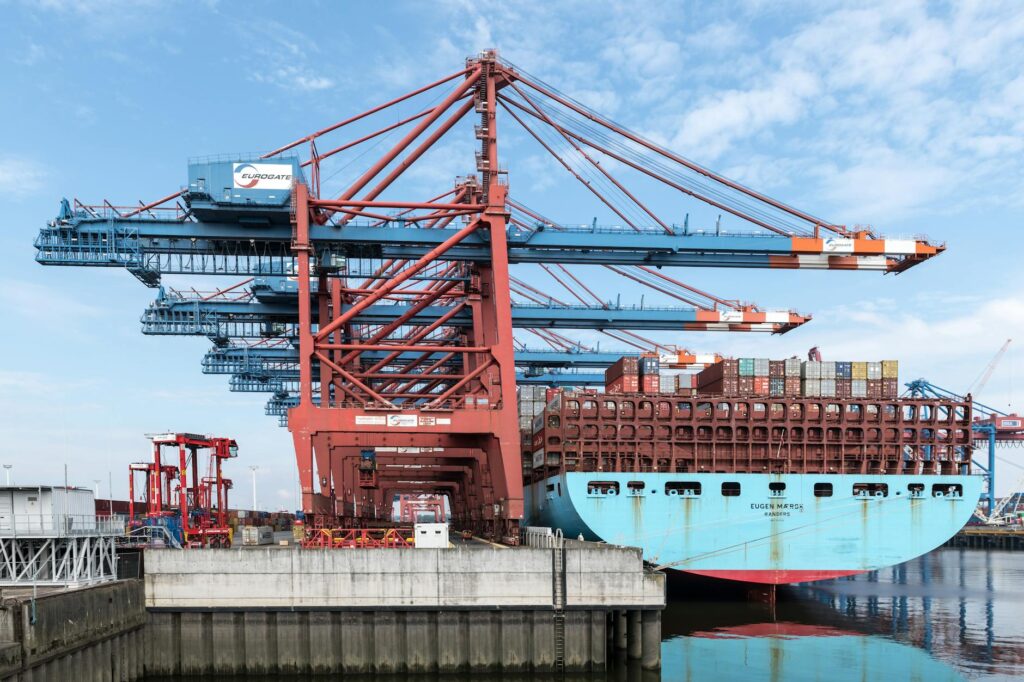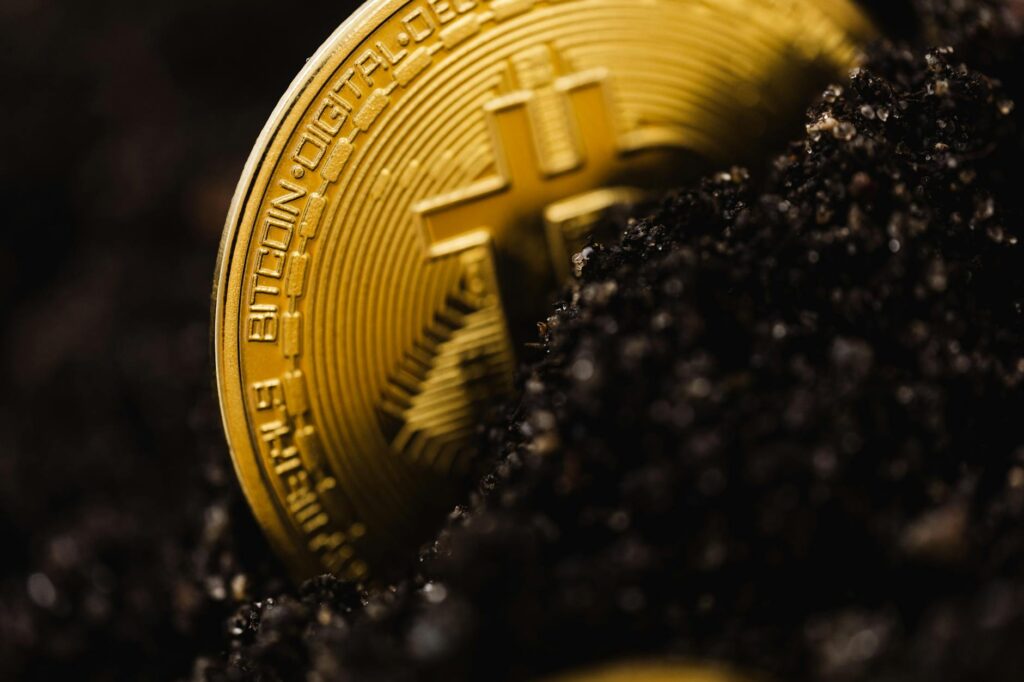The World is Coming Apart. And It Might Be The Best Thing That Ever Happened to Bitcoin.
Remember 2021? The empty shelves, the talk of “supply chain issues,” the feeling that the world’s intricate delivery system had suddenly developed a nasty cough. Most of us chalked it up to the pandemic, a temporary blip. But what if it wasn’t a blip? What if it was a symptom of something much, much bigger? We’re living through the early stages of a massive global shift: deglobalization. And while this unwinding of our interconnected world brings uncertainty and risk, the connection between Deglobalization and Bitcoin might just be the most powerful, under-the-radar investment thesis of the next decade.
For the last 40 years, the world operated on a simple mantra: efficiency. Make things wherever it’s cheapest, ship them wherever they’re needed, and let the money flow freely across borders. It gave us cheap TVs and year-round strawberries. It also made the global system incredibly fragile. Now, the pendulum is swinging back. Hard. From efficiency to resilience. From “just-in-time” to “just-in-case.” This isn’t just about trade wars or tariffs; it’s a fundamental rewiring of the global economic and political order.
Key Takeaways
- Deglobalization is a Shift from Efficiency to Resilience: Nations are prioritizing secure supply chains and national interests over the lowest possible cost, fundamentally changing global trade.
- The Current Financial System is Stressed: The US Dollar’s dominance is being challenged, and the use of financial sanctions (like cutting countries from SWIFT) pushes nations to seek neutral alternatives.
- Bitcoin as a Neutral Reserve Asset: In a multi-polar world with less trust, Bitcoin offers a politically neutral, seizure-resistant store of value that no single country controls. It’s digital gold for the 21st century.
- A Hedge Against Inflation & Capital Controls: Onshoring is expensive and inflationary. As governments print money to fund this transition and impose capital controls to trap wealth, Bitcoin’s fixed supply and borderless nature offer a powerful escape valve.
- Frictionless Cross-Border Value Transfer: As traditional payment rails become more balkanized and politicized, Bitcoin’s ability to move value across borders without intermediaries becomes a killer app for international trade.
First, What Exactly is Deglobalization?
Let’s get one thing straight. Deglobalization doesn’t mean we’re all going back to living in isolated villages, trading goats for bread. It’s not the end of international trade. It’s a re-regionalization of trade. It’s a world where trust is eroding.
Think of it like this. For decades, the world built a single, sprawling factory floor. A microchip might be designed in California, fabricated in Taiwan, assembled in China, and installed in a car in Germany. Hyper-efficient. But what happens when a pandemic shuts down the port in China? Or a geopolitical flare-up threatens Taiwan? The whole system grinds to a halt. Suddenly, that efficiency looks like a catastrophic single point of failure.
The new model is about building smaller, more resilient factory floors closer to home, or at least among trusted allies. This is often called “friend-shoring” or “onshoring.” It’s more expensive, yes. It’s less efficient, absolutely. But it’s seen as more secure. The COVID-19 pandemic was the great accelerator, but the trend was already in motion with Brexit and the US-China trade war. The conflict in Ukraine and the subsequent weaponization of the global financial system put it into overdrive.

The Cracks in the Old World Order
The post-WWII globalized system was built on a few key pillars, and most of them are cracking. The most important one? The U.S. Dollar as the world’s reserve currency.
Holding the world’s reserve currency gives the United States what’s often called an “exorbitant privilege.” It can print money to pay its debts and wield immense influence over the global financial system. The primary tool of this influence is SWIFT, the messaging network that facilitates most international bank transfers.
When Russia was cut off from SWIFT as part of sanctions, it was a financial nuclear bomb. But it was also a wake-up call for every other country in the world, friend or foe. They realized that their access to the global economy was dependent on the political whims of another nation. Imagine being a country like China, India, or Saudi Arabia and seeing that. The immediate, rational response is to find an alternative. To build a system that can’t be turned off by someone else. They’re already doing it, with systems like China’s CIPS, but the ultimate neutral alternative doesn’t belong to any nation.
Where Deglobalization and Bitcoin Collide
This is where things get really interesting. The problems created by a fracturing world are the exact problems Bitcoin was built to solve. It’s not just a coincidence; it’s a perfect match between a macro trend and a technological solution.
Bitcoin as a Neutral Reserve Asset
For centuries, the ultimate neutral reserve asset was gold. It’s durable, scarce, and no one’s liability. When trust between nations breaks down, they hoard gold. Why? Because you can’t print more of it, and its value isn’t dependent on the full faith and credit of a rival nation.
Bitcoin is, in essence, digital gold. It shares the same critical properties:
- Absolute Scarcity: We know for a fact there will only ever be 21 million Bitcoin. Ever. No central bank can decide to create more to bail out an economy.
- Censorship Resistance: As long as you control your private keys, no government or bank can seize your Bitcoin without your consent. It’s a bearer asset for the digital age.
- Political Neutrality: Bitcoin’s network doesn’t care about your nationality, politics, or creed. Transactions are validated by a global, decentralized network of miners, not a committee in Washington or Beijing.
As countries look to diversify away from the US dollar, they won’t just run to the Yuan or the Euro. They’ll look for something truly outside the system. Gold is the obvious historical choice, but it’s hard to move and verify. Bitcoin is the digital evolution. Don’t be surprised if, in the coming years, you see central banks—especially smaller nations caught between giants—begin to announce they’ve added Bitcoin to their reserves as a strategic hedge.
Escaping Capital Controls in a Fractured World
When countries get into economic trouble or want to exert more control, one of the first tools they reach for is capital controls. These are rules that limit or tax the flow of money out of a country. Can’t move more than $10,000 out of the country? That’s a capital control. A special tax on converting your local currency to dollars? Capital control.
In a deglobalizing world, expect to see a lot more of these. As governments spend fortunes on onshoring and face rising deficits, they will be desperate to keep capital trapped within their borders. It’s a way to force citizens to fund the government’s debt.
Bitcoin completely bypasses this. It is a borderless, permissionless system. An individual or a business can send millions of dollars worth of Bitcoin to anyone, anywhere in the world, in minutes, with nothing more than an internet connection. No asking a bank for permission. No filling out forms. No one can stop it. This makes it an incredibly powerful tool for preserving wealth and economic freedom in a world that is becoming less free.

The Problem with Cross-Border Payments
Have you ever tried to send money internationally? It’s a nightmare. It’s slow, taking days to clear. It’s expensive, with correspondent banks taking a cut at every step. And it’s opaque; you’re often not sure where your money is or when it will arrive. The system runs on ancient technology and is built on a web of trust between banks—trust that, as we’ve established, is rapidly declining.
Now imagine you’re a business in Argentina trying to pay a supplier in Turkey. In a world of shifting alliances and financial sanctions, that transaction becomes a minefield. Will the payment be blocked? Will the currency conversion eat up all the profit?
Bitcoin (and its second layers like the Lightning Network) solves this. It’s a global, 24/7/365 settlement network that belongs to everyone and no one. A payment can be sent directly from sender to receiver, settling in minutes for a fraction of the cost. It’s like upgrading from a horse-and-buggy postal system to email. For international trade in a fractured world, this isn’t just a nice-to-have; it’s a game-changer.
An Inflation Hedge in an Era of Onshoring
Bringing manufacturing home is popular politics, but it comes with a hefty price tag. Labor is more expensive. Environmental regulations are stricter. Energy costs are higher. All of this translates into one thing: inflation.
The cost of making everything a little closer to home will be passed on to consumers. At the same time, governments will be borrowing and printing massive amounts of money to subsidize these new domestic industries. It’s a perfect storm for the debasement of fiat currencies. Your dollars, euros, and yen will simply buy less over time.
This is Bitcoin’s original value proposition. It is an asset with a perfectly inelastic supply. No matter how much demand increases, the supply schedule is fixed and unchangeable. As people watch the purchasing power of their savings get eroded by inflation, they will naturally seek out assets that can’t be debased. They will run to hard assets. And in the 21st century, the hardest, most portable, and most divisible asset in the world is Bitcoin.

The Road Ahead Won’t Be Smooth
It’s important to be realistic. This isn’t a prediction that Bitcoin will replace the dollar tomorrow. There are significant headwinds.
Volatility is the most obvious one. How can an asset be a store of value if its price can drop 20% in a day? This is a valid critique, but it’s also a function of Bitcoin’s youth and relatively small market cap. As it matures and adoption grows, volatility has historically trended downwards. Gold was volatile in its early days, too.
Regulatory uncertainty is another major factor. Governments don’t like competition, and they certainly don’t like an asset that allows citizens to bypass their control. We can expect a regulatory battle, but an outright ban in major economies is becoming less likely. It’s too late; the cat is out of the bag.
However, these are challenges to be overcome, not fundamental flaws in the thesis. The underlying macro trend of deglobalization is powerful and undeniable. It is a river flowing in a certain direction, and Bitcoin is the vessel perfectly designed to navigate its currents.
Conclusion
The era of hyper-globalization is over. A new, more chaotic, and more regionalized world is taking its place. This new world will be defined by mistrust, strategic competition, and a desperate search for security—both physical and financial. In this environment, the very attributes that once made Bitcoin seem strange or unnecessary—its decentralization, its lack of state control, its absolute scarcity—become its greatest strengths.
Deglobalization is not a short-term trade. It’s a multi-decade seismic shift. As the old system cracks and splinters, capital will flow to assets that offer true sovereignty and resilience. It will flow to the asset purpose-built for a world without a trusted center. It will flow to Bitcoin.
FAQ
Isn’t Bitcoin too volatile to be a global reserve asset?
While Bitcoin is volatile today, this is largely a symptom of its age and current market size. Any new asset class goes through a monetization phase where volatility is high. As adoption increases and liquidity deepens, volatility is expected to decrease over time, much like it did with gold. Early adopters are accepting this volatility in exchange for the potential for significant appreciation. For a nation-state, even a small, volatile allocation can serve as a powerful, non-correlated hedge.
What’s the difference between Bitcoin and other cryptocurrencies in this context?
The key difference is decentralization. Bitcoin is the most decentralized and secure cryptocurrency network by a massive margin. There is no CEO, no central foundation, and no pre-mined coins for insiders. This makes it credibly neutral. Most other cryptocurrencies are more centralized, making them more vulnerable to control, censorship, or failure. In a world seeking a truly neutral asset, only Bitcoin’s unparalleled decentralization fits the bill.
How could governments react to Bitcoin’s rise in a deglobalized world?
Reactions will likely be mixed and will evolve over time. Some governments will feel threatened and attempt to impose harsh regulations or bans. Others, particularly smaller nations or those at odds with the current financial system, may embrace it as a strategic tool. We could see a geopolitical game theory play out, where the first few countries to officially add Bitcoin to their reserves could trigger a race among others not to be left behind, similar to how central banks manage gold reserves today.


